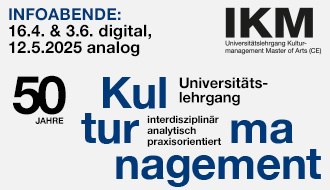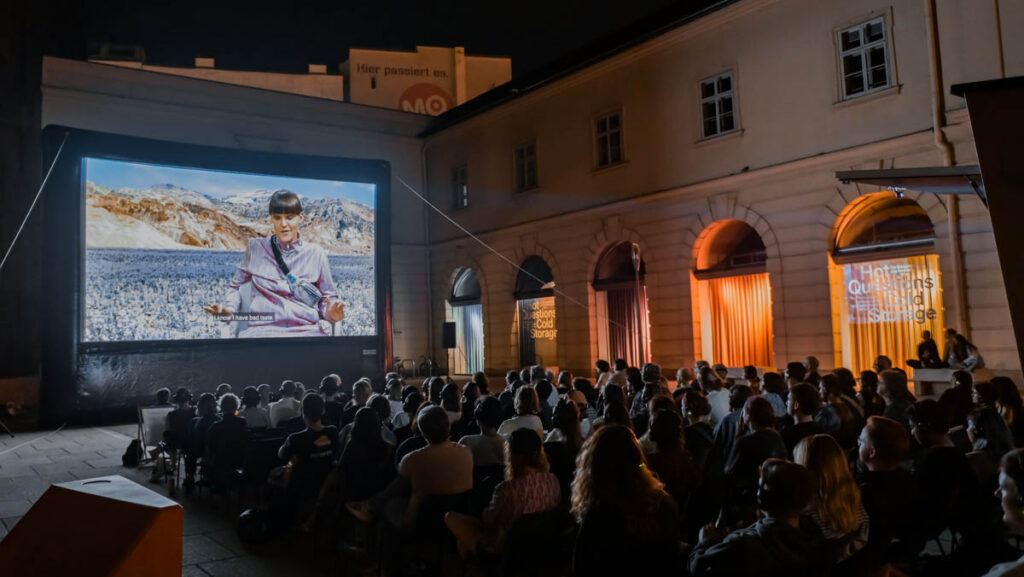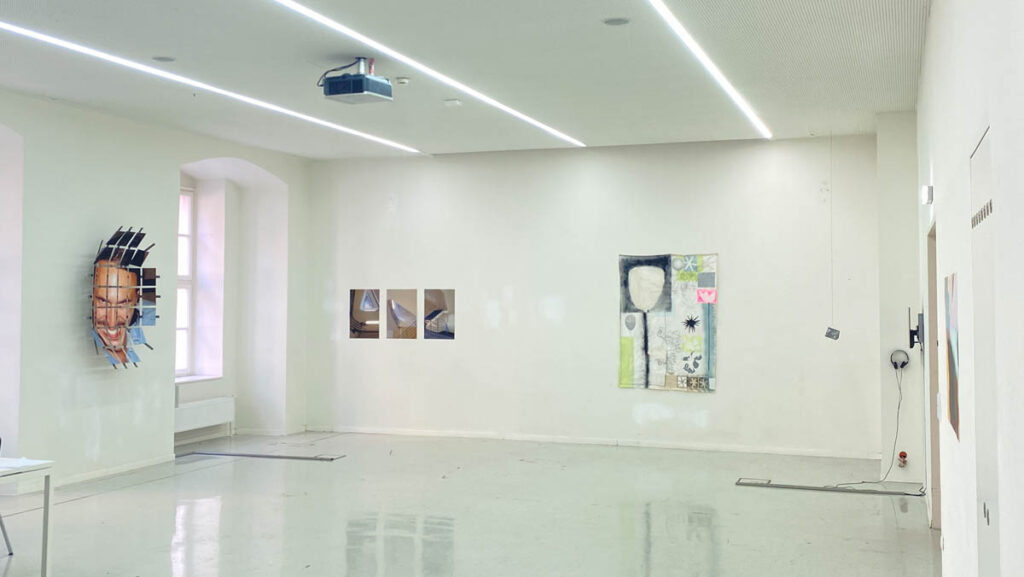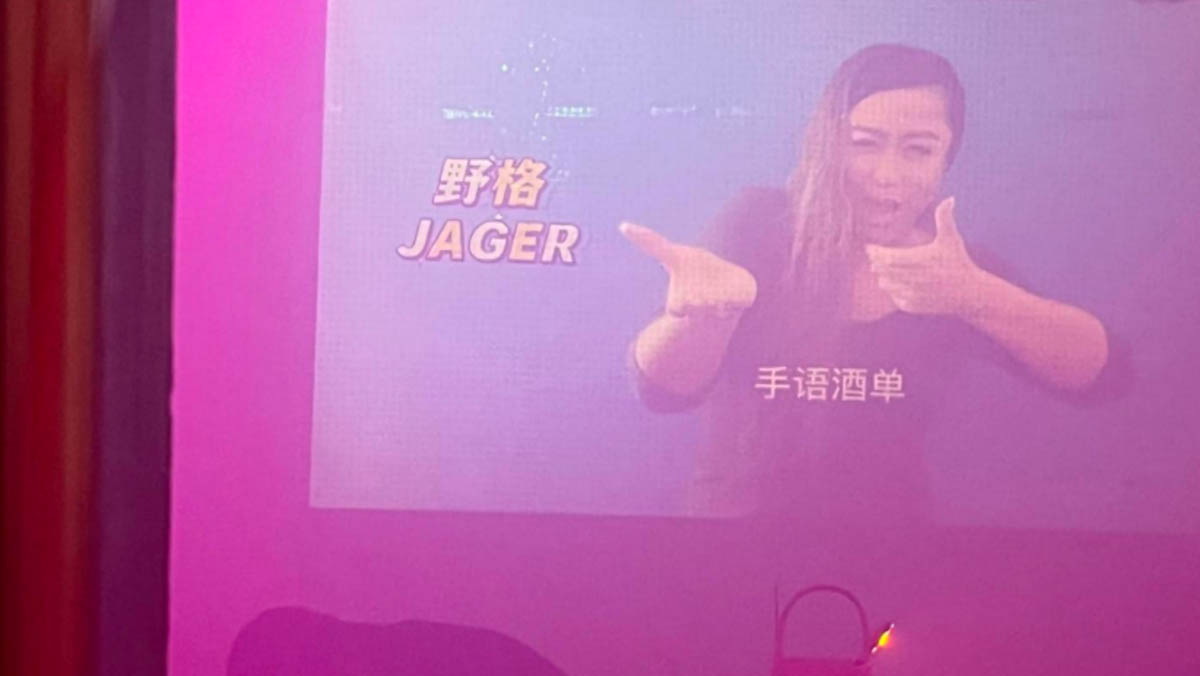
Alice had invited me to the deaf friendly clubbing ‚Bass Bath’ Party the day before, when we met at Eka Tianwu, a new creative community hub in a former industrial complex. Alice has a sparkling energy – I discovered this for myself in 2022, when we collaborated remotely on the exhibition “Art and Signs. Deaf Culture / Hearing Culture” at the Shanghai Duolun Museum of Modern Art. Now, I am in Shanghai for the first time and we are both excited to finally meet in person.
Alice has a few insider tips for the first-time visitor, like the café and restaurant La Cour, which employs deaf coffee baristas and where I can get my pommes frites before going to the club. For the interview at Eka Tianwu, Alice’s boyfriend, Jayme Lawman, joins us online on the phone to interpret our conversation in English and CSL.
Season 1, Episode 4: A conversation with Alice Hu Xiaoshu
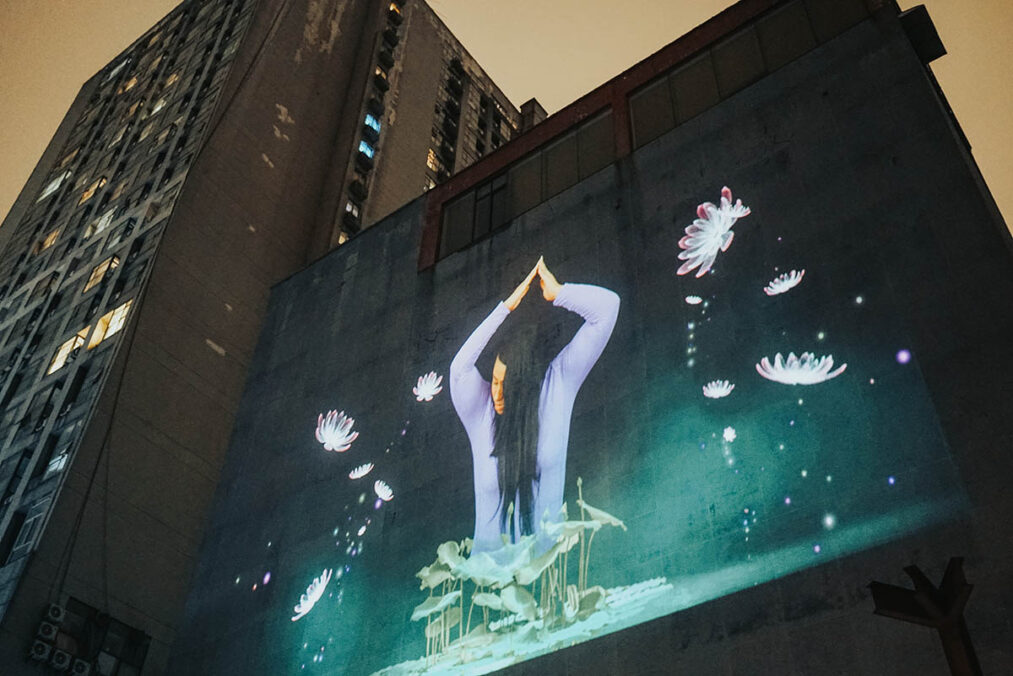
An: What are you working on at the moment?
Alice: I’m working on a new project with the UK artist Cathy Mager. It is called Night Bloom. We had a successful grant, so we are going to do a big project this time. We’re already editing the video. In September, it is the International Deaf Week so we’re going to the museum Tank Shanghai where they have lots of art spaces. They have three big tanks and we’re going to do a 360 degree projection on them. It is going to be really huge!
An: Wow, what is the story behind the project?
Alice: It is going to be based around nature and sign language, it’s about the environment. So it’s all about recycling and being environmentally friendly. We’re using sign language to show this.
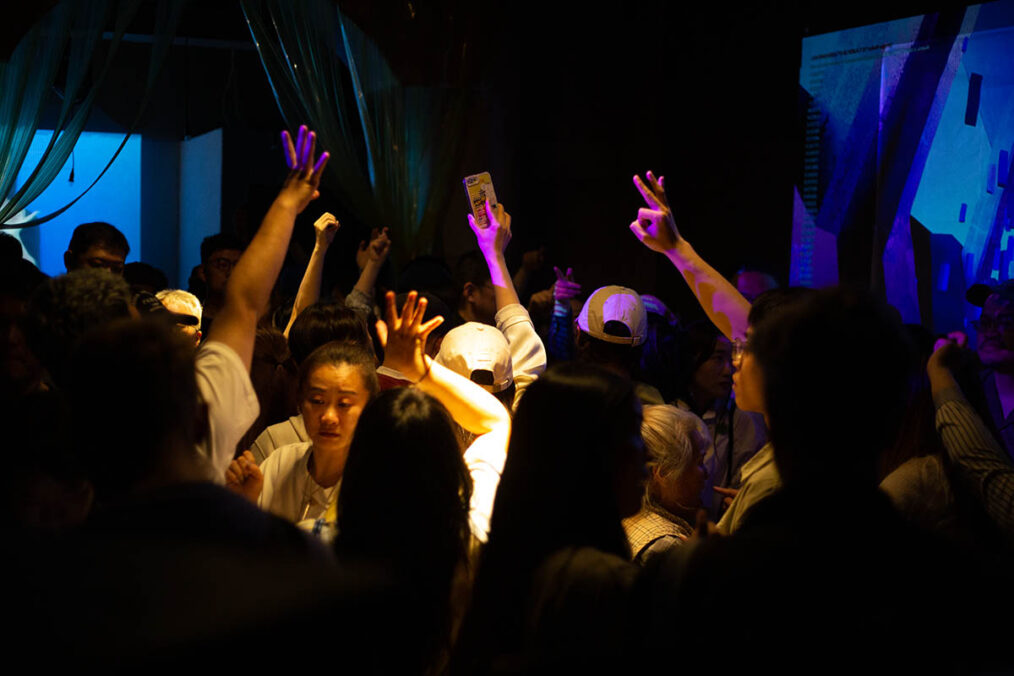
An: Do you make a connection between the environment and sign language?
Alice: It’s about making a comparison between Deaf people and sign language with nature and trees. Trees do not make sound, but they have their own movements as they blow in the wind. Deaf people, like trees, are silent, yet we grow firmly like roots and our leaves flourish. Our sign language, akin to intertwined roots, unites us, allowing us to express ourselves vividly and convey powerful messages.
An: Also in ‘Unfurl’, your former collaboration with Cathy Acker in 2022, climate change, biodiversity, and Deaf culture were central topics.
Alice: Climate change is due to humans, right? We haven’t protected the earth well enough. That is the connection with Deaf people, there is a lot of discrimination and a lack of accessibility. Deaf people are put aside. We need to protect the Deaf community and sign language, as much as the environment.
An: Who is working with you on the new project?
Alice: All of our producers are Deaf people based in Shanghai and UK. They are working on the art, the setting, and the animation.
An: How did you become a performance artist?
Alice: I was in a Deaf school when I was younger. We would get together and do ballet, then we started doing hip hop dancing, jazz dancing, breakdancing, and then we started making art. When I moved to Austria to study, that’s when I really started creating performances. In Austria, they have the Deaf Performance Theatre. It is very diverse, and they wanted an Asian participant on their team. It was a great opportunity. I did fifteen years of stage performance in Austria. I learned sign language stage performance. We would get together, talk about different ideas, brainstorm together on how to use sign language and incorporate it into art. Coming back to Shanghai, I saw that there is not much going on and that there are a lot of hearing people who are controlling everything. Deaf people don’t have the chance to take the lead in these performances. So, I want to give opportunities to Deaf people to boost their talent and to show what they are capable of.
An: And you are the founder of a theatre group, where you teach improvisational dance too?
Alice: When I was younger, I did a lot of dance performances, thinking about how to incorporate body movement, philosophy, sign language and bring that all together to create a performance.
An: You even became a media influencer. In Berlin, everyone seems to know you!
Alice: In Europe, the Deaf community is a tight group. It’s not just me! Everybody knows each other. Fortunately, a lot of people know each other through social media. It is a great way to share ideas.
An: You’re very much an activist for Deaf culture.
Alice: When I was in Austria, studying, I discovered that in China, Deaf people are not allowed to drive but in Austria they are. I thought: “That’s weird!” Through social media, this topic became popular. By interviewing people and doing some vlogs, it spread all over China and Deaf people were talking about it. They started spreading the word, coming together and they made appeals to the government. In the end, they changed it! Now also Deaf people are allowed to drive in China. From driving, we then went on to sign language and to spread sign language.
An: Is CSL an official language in China?
Alice: It’s not. Politics are very different here. All the different provinces have started to talk about the criteria for it to become an official language in China. It is not like in Europe where the countries are a lot smaller, and it is easier to make special deals. In China, the appeal has been something like ten years in the making so hopefully, soon it will be recognised as an official language.
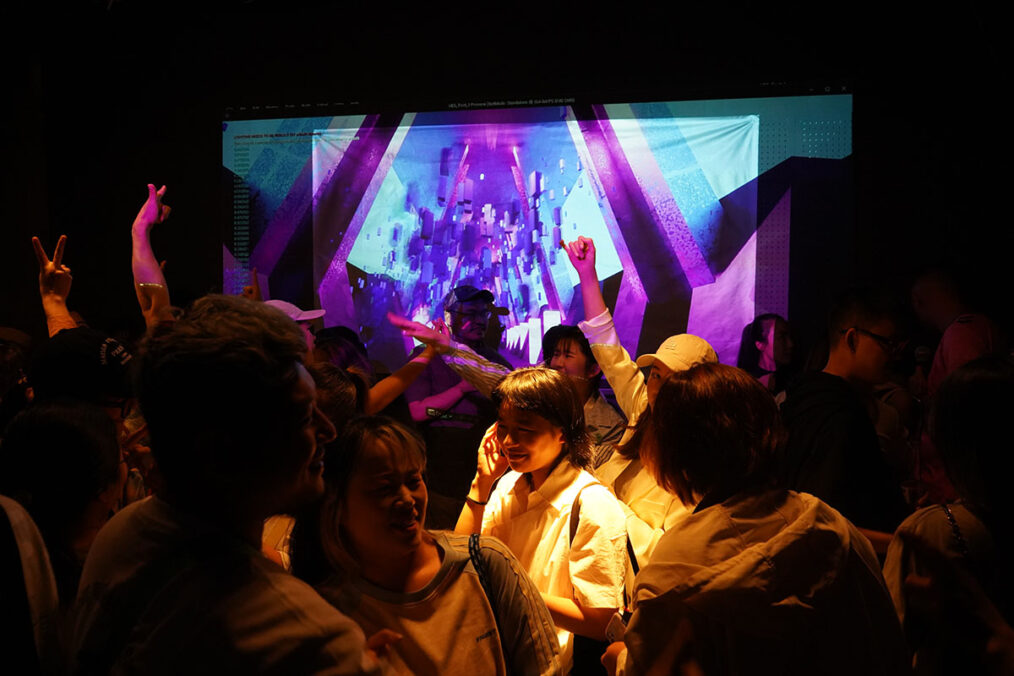
An: The technology here seems to be much further ahead than in Europe. I guess that makes a lot of things easier?
Alice: Kind of yes and no. The development of technology is a lot better so that is good. In terms of accessibility, it can help people in their daily life. But there are negatives as well. As technology is improving, it can also have a negative impact on Deaf culture and their traditional Deaf values and sign language culture. Sign language culture gets put aside and it influences human rights as well. Artificial intelligence is now becoming very popular and more advanced, so now we can have subtitles, and everyone is saying, “Wow, that is really cool!” – but they forget about deaf people’s sign language rights. It is all for the convenience of hearing people rather than taking the Deaf people’s feelings into consideration. Just like in Europe, traditional Deaf values can be valued just as much as AI and other technological advances. There is a human element to it as well
An: You wear many hats. You are an artist, a choreographer, an arts producer, a teacher, a consultant, an interpreter for various sign languages. Do you enjoy the variety?
Alice: Yes, I do like it. I think that if I would sit in an office every day, I would not have the opportunity to be a voice for Deaf people. That is why I choose this kind of freelance lifestyle to try to give Deaf people opportunities and show we are capable and to increase opportunities.
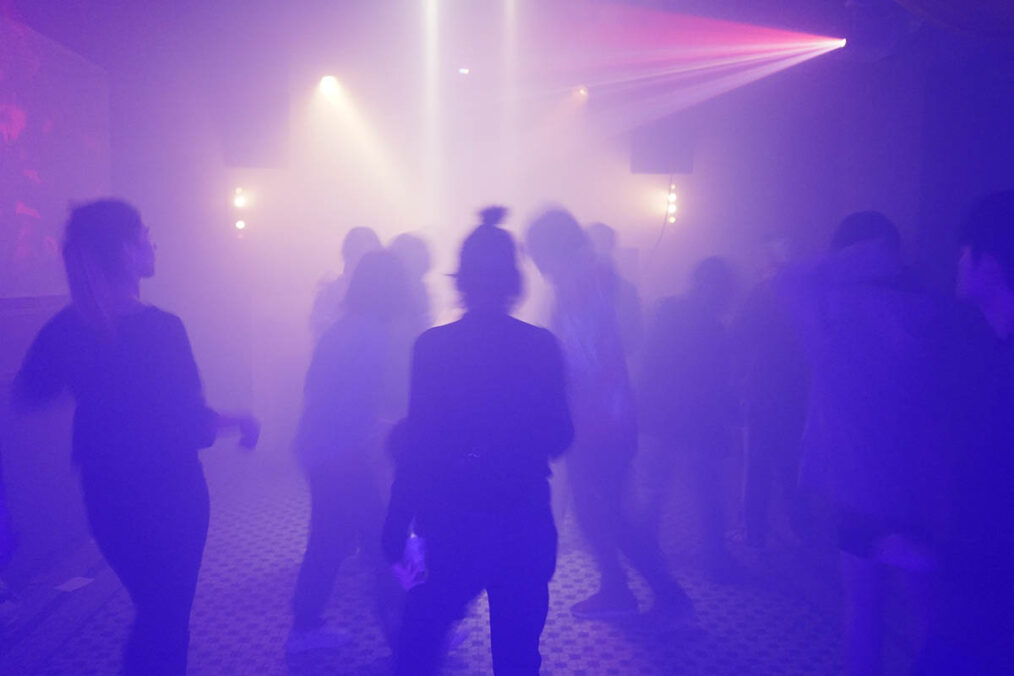
An: Tomorrow, you are organising the Deaf clubbing ‘Bass Bath’ together with the curatorial collective Transparent Afternoon.
Alice: Yes, we would like to create a Deaf-friendly party environment. A lot of Deaf people do their own thing, and they don’t come together. ‘Bass Bath’ is an opportunity for Deaf people to come together in an accessible environment, to experience heavy base, visual effects, and interaction. Our videos will be connected to the music so all the effects on screen will be connected to the music. Deaf people can feel the base and see the special effects on screen. I’m very excited! This is the first time that we do it. It is a small party, but we want to try it out. We want to give Deaf and hearing people a place to communicate with each other. Shanghai has a huge Deaf community, but they are all in their small groups, so we want them to come all together and have a good night!
An: I’ll come!
Alice: Yes, join us!
Alice Hu Xiaoshu – https://xalicehu.wixsite.com/alicehu
Link previews episode: The Vikings’ Speed Boat
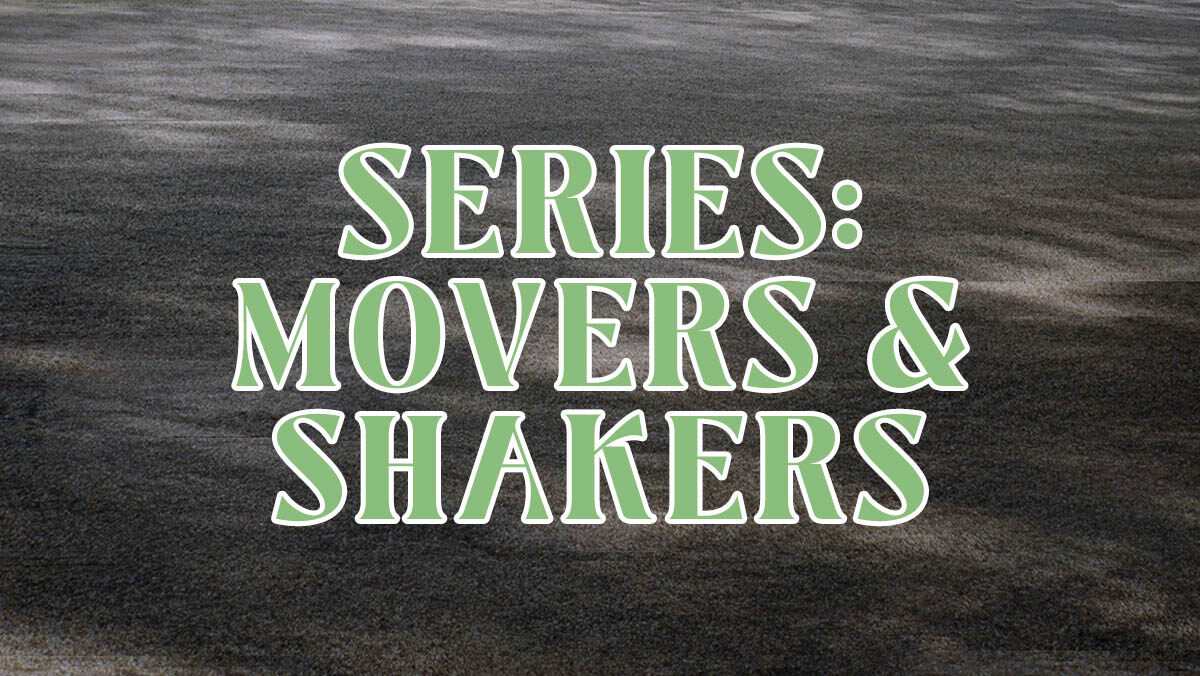
About the Series: Curating, writing, and teaching brings An Paenhuysen to many places in the art world, from an artist studio in the 22-story tall Meritomi in Helsinki, a senseless residency in Milan, to the Kempinski hotel in Dhahran. Often, on those journeys, she meets people who are doing something interesting, different, and new. In this series, you will read about these encounters with artists, publishers, researchers, gallerists, and curators that gave off a sparkle so that An turned it into an interview.



